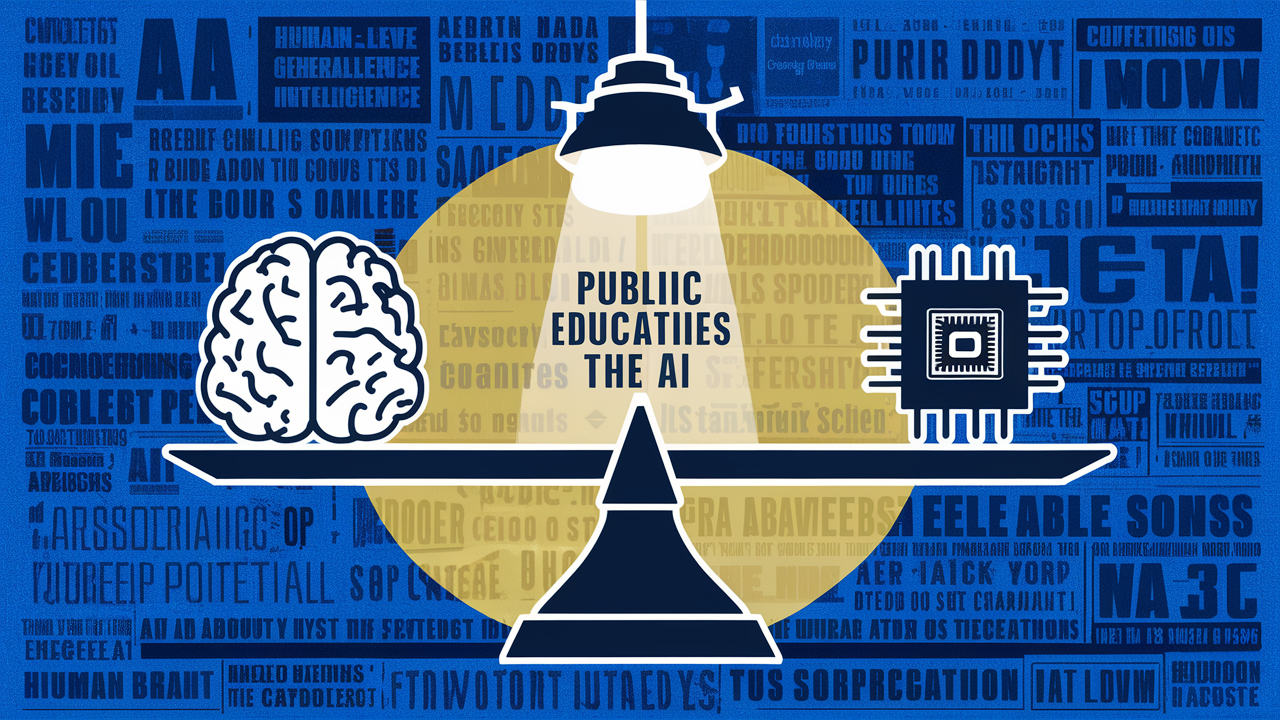

Artificial intelligence (AI) has become a ubiquitous term, swirling around us in news headlines, science fiction movies, and even our daily commutes via "smart" assistants. But amidst the hype, a critical disconnect emerges – the gap between what AI can truly do today and the fantastical expectations fueled by media portrayals and sensational claims. This article aims to bridge this gap by offering a realistic perspective on AI's current capabilities and future potential.
Imagine a world where robots seamlessly integrate into our lives, replicating human thought and behavior. This vision is often painted by movies featuring sentient androids and self-aware AI systems. While captivating, such depictions often lead to unrealistic expectations about the current state of AI.
Media headlines further contribute to the hype, frequently announcing breakthroughs that reveal a more nuanced picture upon closer inspection. Terms like "artificial general intelligence" (AGI), implying a machine with human-level understanding and reasoning, are often misconstrued as the current state of AI, when in reality, most AI systems function in a far more specialized way.
The Reality Check: AI's Strengths and Limitations
So, what does AI actually do? At its core, AI encompasses various techniques that enable machines to learn from data, identify patterns, and make predictions. This translates to impressive capabilities in specific domains:
- Machine Learning (ML): Algorithms trained on vast datasets excel at tasks like image and speech recognition, fraud detection, and product recommendations.
- Deep Learning: A sophisticated subset of ML, deep learning powers applications like facial recognition software and natural language processing (NLP) that allow chatbots to understand and respond to human language.
Examples in Action: AI's Impact Across Industries
AI's impact is undeniable, revolutionizing industries from healthcare to finance. Let's see some real-world applications:
- Medical Diagnosis: AI analyzes medical scans to detect diseases like cancer at earlier stages, leading to improved patient outcomes.
- Personalized Learning: AI tailors educational content to individual student needs, enhancing the learning experience.
- Financial Fraud Detection: AI algorithms identify suspicious financial activity in real time, protecting consumers and businesses.
The Challenge: Educating the Public without Dampening Enthusiasm
It's crucial to acknowledge AI's limitations as we celebrate its advancements:
- Narrow Focus: Today's AI systems excel at specific tasks, not general intelligence. A chess-playing AI cannot suddenly write a novel.
- Data Dependence: AI is only as good as the data it's trained on. Biases in data can lead to biased algorithms, highlighting the need for responsible development practices.
- Explainability Challenge: Some complex AI models lack transparency, making understanding how they arrive at decisions difficult.
Educating the public about these limitations fosters realistic expectations and prevents disappointment. However, it's equally important not to downplay the transformative potential of AI.
AI's Transformative Potential: Collaborators, not Replacements
Here's a glimpse into AI's potential to reshape our future:
- Automating Repetitive Tasks: AI can free up human time and resources by handling mundane tasks in various sectors, like customer service and data analysis.
- Scientific Discovery: AI can analyze massive datasets, accelerating scientific breakthroughs in medicine and materials science.
- Personalized Experiences: AI can personalize experiences across industries, from education to entertainment, catering to individual preferences.
The Path Forward: A Collaboration Between Humans and AI
The key to unlocking AI's potential is fostering collaboration between humans and machines. Humans provide the creativity, critical thinking, and ethical compass to guide AI development and deployment, while AI empowers humans with data-driven insights and automation capabilities.
Addressing Ethical Considerations
As AI becomes more sophisticated, ethical considerations become more prominent. Bias in algorithms, job displacement due to automation, and privacy concerns surrounding data collection are critical issues to address through responsible development and regulation.
Conclusion: Demystifying AI for a Brighter Future
AI is a rapidly evolving field with exciting possibilities. We can bridge the gap between unrealistic expectations and its true potential by demystifying AI. As we move forward, let's focus on fostering collaborations between humans and AI, ensuring ethical development, and harnessing this powerful technology for a brighter future.
*** This is a Security Bloggers Network syndicated blog from Meet the Tech Entrepreneur, Cybersecurity Author, and Researcher authored by Deepak Gupta - Tech Entrepreneur, Cybersecurity Author. Read the original post at: https://guptadeepak.com/ai-separating-fact-from-fiction/
如有侵权请联系:admin#unsafe.sh

